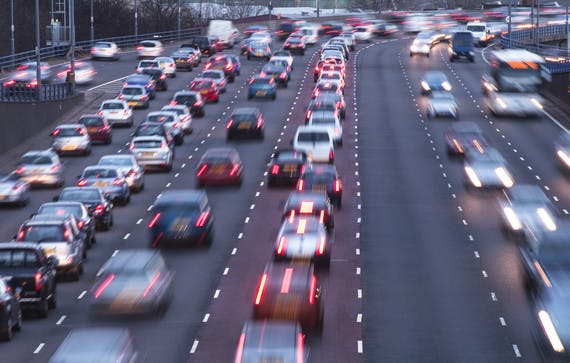Depreciation: the biggest factor affecting the cost of running your car

If you are a car owner, you are well aware of the cost of fuel, road tax, servicing and insurance. But what you may be less aware of is something that could actually be your biggest running cost, the big ‘D’ – depreciation.
What is depreciation and what does it mean for me?
Put simply, depreciation is the difference between the price of the car when you buy it and the amount you get when you sell it or trade it in.
Most of us overlook depreciation when we buy a new set of wheels, focussing on things like fuel economy instead. But while the number of miles per gallon you will get with new car are crucial, choosing a car which depreciates slowly could actually save you more money in the long run than fewer trips to the petrol station.
In fact, according to research by CAP Automotive, depreciation will cost the typical motorist three times as much as they spend at the petrol pump. Ouch!
Depreciation starts the moment that you drive off the forecourt. In the first three years alone, your car’s value can drop by 50%, according to the Money Advice Service. Most of that occurs in the first year, slowing down as it ages.
The good news? By the time you've reached the eighth year of ownership, depreciation reaches a standstill.
What causes depreciation?
But why do cars lose value so quickly? What is it that makes me lose money on my new motor?
There are a number of reasons why some cars fall in price more quickly than others, and it may not be what you think:
Mileage, for instance, plays a big part in deprecation. The fewer miles you clock up, the better your vehicle will hold its value. The average motorist drives about 10,000 miles per year. Drive more than this and your car will be worth less. Drive fewer, and suddenly your mileage is working in your favour.
The amount of road tax payable is also a consideration. Fuel-guzzling cars cost much more to keep on the road each year, which makes them less desirable when selling second-hand.
The general condition of your vehicle plays an important part in maintaining its value too. Any damage to the car, whether inside or out, will have a significant impact. Similarly, having a complete service history with evidence of stamps or receipts in line with the manufacturer’s recommendations will mean you can get more when you go to sell.
But there are other factors that can be beyond your control. These are unavoidable, but taking them into consideration when making your purchase can help soften the blow.
For many cars, reliability plays a major part in your selling on price. Some cars are perceived to be problematic, often reported in the press and in customer satisfaction surveys. The theory is, that the more dependable the vehicle, the better value it will hold.
When it comes to car depreciation, size really does matter. Big luxury cars tend to fall in value faster and more significantly than smaller cars, simply because they cost more to run. Even the colour of the vehicle’s paintwork can affect its depreciation. White cars, for instance, are said to be easier to sell, so tend to hold their value better than vehicles with different colour paintwork.
How can I avoid or reduce depreciation?
Fortunately, there are ways to minimise depreciation. Some are easier than others though. For instance, taking care to ensure your car is spick and span before selling will help boost your profits.
Also, getting the timing right for your sale can pay dividends. For instance, a large number of used cars flood the market in September and March as people trade up to the new-registration vehicles issued in those months. Beat the fall in price due to increase in competition by selling slightly earlier.
If you are looking to shift a 4x4 vehicle, the colder weather of the winter months means you are more likely to get a better price. While selling your sports car during the summer will help you get more from the sale.
But the true value of a used car is the amount that a buyer is willing to pay for it. Luckily, there are some handy online calculators that can be useful for setting a fair and realistic asking price.
What’s more, these can also help you to estimate the true cost of owning a car by calculating the rate at which it will depreciate and lose value.
Make searching and staying updated even easier.